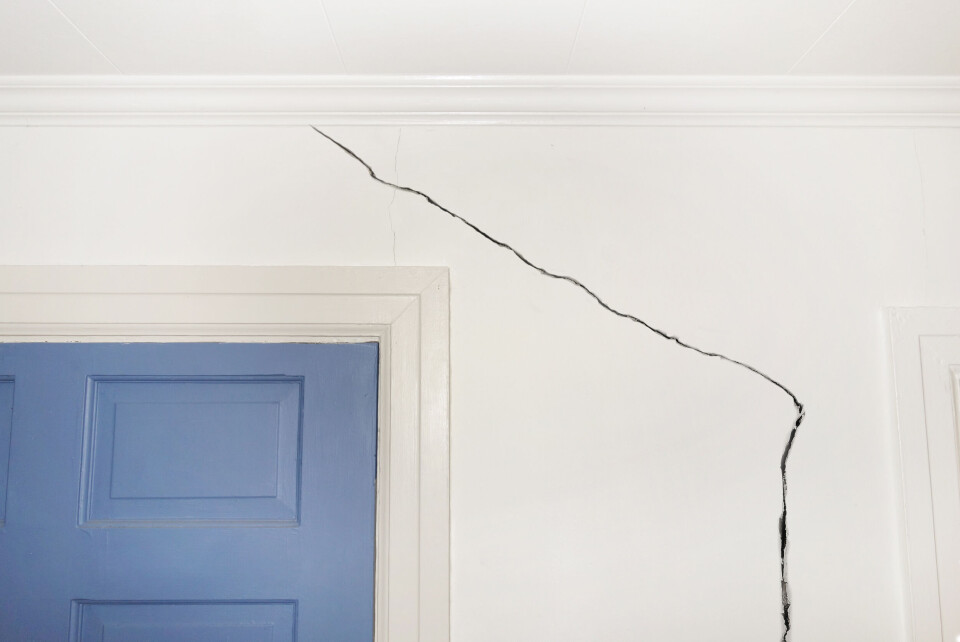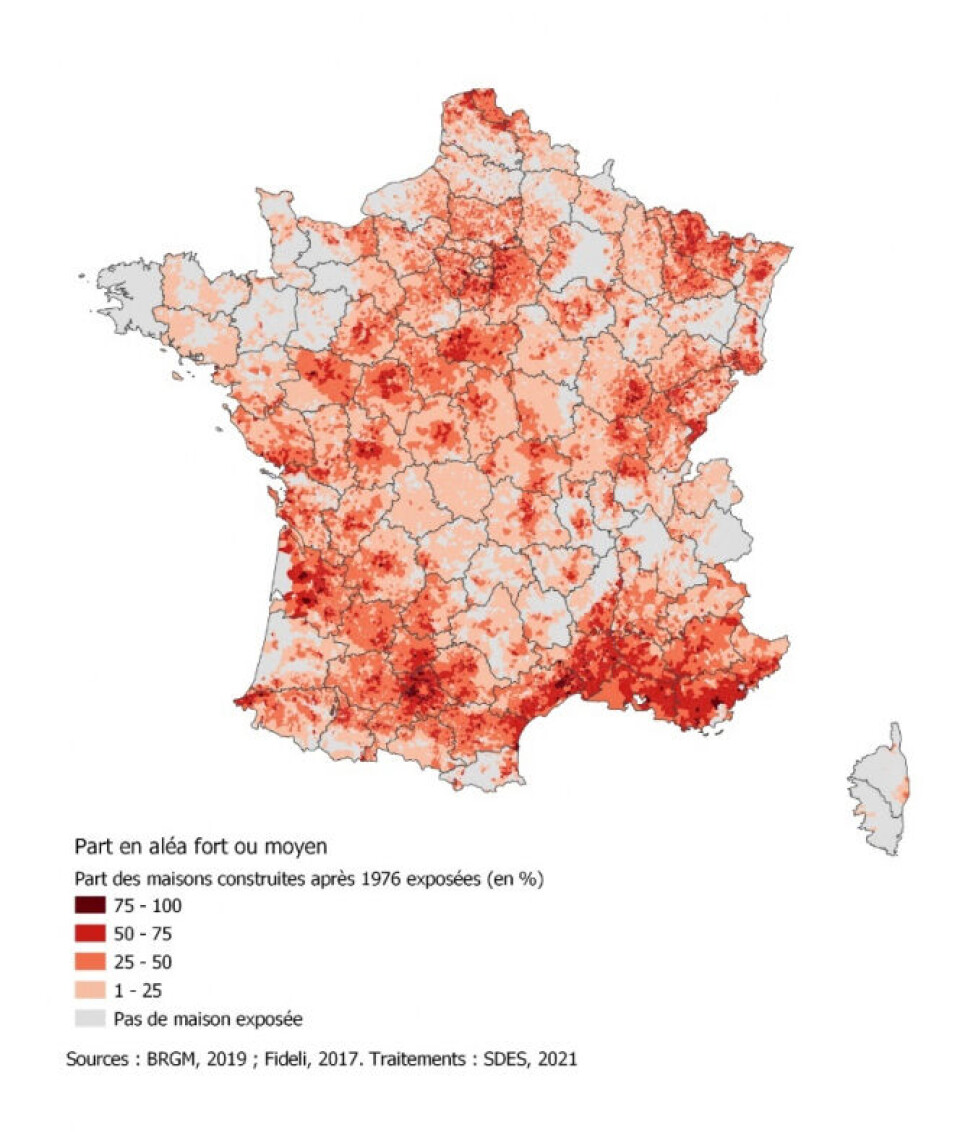-
Why storms in France have indirectly caused carbon monoxide poisoning
We cover tips and rules for detectors
-
Can you offer rentals in France when staying on visitor visa?
There are different thresholds for rentals before they are deemed as ‘professional income’
-
Must all properties in France have a ‘smart’ thermostat?
Modern thermostats can automatically set temperatures even when residents are away
MPs back compensating homeowners in France for drought damage
Over ten million homes are sited in at-risk zones

Homeowners whose property has suffered damage due to drought could soon receive compensation after French MPs voted in favour of the move.
The bill, which was proposed to parliament by MP Sandrine Rousseau, would change the criteria that the government uses to recognise a ‘state of natural disaster’ (état de catastrophe naturelle), and mean that owners whose homes are damaged by drought could unlock ‘natural disaster’ insurance claims.
Parliament adopted the bill on Thursday (April 6), in a first reading, by 115 in favour and nine against. It will now be examined by the Senate.
Maisons fissurées à cause de la sécheresse : Cmt protéger les citoyens et citoyennes face à l’amplification du réchauffement climatique ?
— Sandrine Rousseau (@sandrousseau) April 6, 2023
👉Présentation de notre PPL visant à mieux indemniser les dégâts liés à la sécheresse.#NicheEcolo2023 #RGA #DirectAN pic.twitter.com/ANLqXCInpQ
New recognition of drought natural disaster
In particular, the bill provides for owners whose property has been damaged by expansion and shrinkage of ground due to drought, made worse by climate change. It states that to be recognised as an official ‘natural disaster’, the drought must be:
- Considered one of the five worst droughts in the past 50 years
- Compared to the current rule that states the drought must be “one of the worst two” in the past 50 years
The bill is aiming to “rebalance relationships between the insurer and the insured”, it says. It states that the expansion and shrinkage of clay soils should be recognised as a “determining cause” of damage during a natural disaster caused by drought.
It also states that the “worsening of [and existing] crack” during a period of drought (that is recognised as a natural disaster) should be considered “a new sign of damage”, which can be paid for by insurance.
Read more: France’s ‘catastrophe naturelle’ insurance system: how to claim
Read more: MAP: Warning of insurance issues as flood-risk zones in France expand
‘Administrative nightmare’
Ms Rousseau said: “Residents describe major breaking noises during the night. Sometimes doors won’t open, and windows only stay shut if they’re held in place by props.”
She described the “nightmare” of homeowners being caught in “administrative procedures”, only to be poorly compensated by insurance for the damage. She said that more than 10.4 million homes in France are in a potential risk area, of which half were built after 1976.
One homeowner in Loiret told FranceInfo that her home became damaged after the drought in the summer of 2018. She said: “There is a very large crack in my daughter's wall again. The wall has even come loose from the ceiling. Since the drought in 2018, we haven’t even been able to close the doors anymore.”
She said that her initial claim for compensation from her insurer was rejected. After fighting that decision, and getting a second opinion on the state of her home, she arrived at a compromise with the company. The insurer eventually agreed to pay more than €100,000 for repairs.
She said: “I find that it’s too difficult to get compensation. The slightest word you use can be turned against you. It makes me angry.”
Another woman, who lives in Loury, near Orléans, said that she has given up fighting with her insurance company. Aged 67, she is now saving up pension credits to pay for repairs. She said: “In 2007 when everything was costed, there was €50,000 [of damage]. I had windows that wouldn't close.”
She said: “As my banking company was also my insurance company, they told me 'if one day you get burgled, this [insurance] won't work [be valid]'.”
She was forced to have her windows changed, which cost €14,000. She also had to have €15,000 worth of work done on her shutters, “because everything moves”. This has had a significant effect on her financial situation, she said.
"No more holidays, no restaurants, no going out, because I have credit debt now, and I only have a small pension,” she said.
Read also: French town bit by severe hailstorms still in damaged disarray
Clay soil claims
A 2021 report by France’s ecology ministry states the expansion-shrinkage cycle of clay soil - and other ground movements due to drought - represents 20% of natural disaster situations and 36% of compensation costs.
It also said that clay soil movement affects 48% of the ground in France.
Individual houses constructed after 1976 at risk of expansion-shrinkage of clay soil (in %)

Criticism of legal ‘fix’
However, France’s Digital Transition Minister, Jean-Noël Barrot, criticised the new bill.
He said that the criteria for defining a natural disaster should not be "fixed" in law and that a government order already provides for a relaxation of these criteria.
He added that a circular coming soon would already allow "a 20% increase" in the number of victims compensated for natural disaster claims in France.
Related articles
Moves to improve compensation for drought damage in homes in France
Natural disaster declared after droughts around Toulouse and Côte-d’Or
























